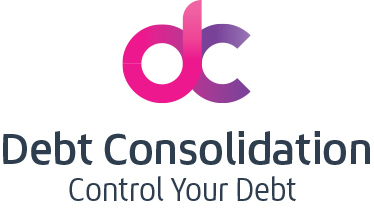Debt consolidation is a simplified strategy of rolling multiple debts into a new one with lower interest rate than all your existing debts combined. A single payment period each month makes your payments more manageable. Here are three options to consolidate debts:
Balance Transfer Card
It refers to the moving of money owed from a high interest credit card to one with a lower APR. You are fortunate if you can still get 0 percent balance transfer. Still, regardless of the rate, it’s important to do your research before using a balance transfer card. But there are factors to consider when choosing this option.
- You need a solid credit history – Mainstream lenders are tightening their lending criteria and only those with good credit score and a consistent pattern of on-time credit card payments may qualify. So, if you want to apply for a lower interest credit card onto which you can move your outstanding balances, make sure that you have a copy of your credit report. By doing balance transfers you can save up to thousands of dollars in interest charges.
- The amount you wish to transfer must be within the credit limit of the low interest card – If you have $5,000 in outstanding balances on several high interest rate credit cards, you may be able to move all of these debts onto your new low-rate balance transfer credit card. But, if it is $25,000 or more, you have to move a portion of the debts, one by one, until you have fully paid them off and ultimately lowered your overall interest costs.
- Watch out for balance transfer fees – The issuer usually charges a fee to complete the process, unless it is stated up front that they are not applying fees at all.
Unsecured Personal Loans
If you don’t want to use collateral, you can apply for a personal loan to borrow money and pay back a fixed amount each month. The amount you can borrow might be more than what you can get from a balance transfer credit card. It is easy on the budget because of the fixed amount of repayment each month. If you opt for a personal loan with a fixed interest rate, you will know how much it will cost you in the long run. You can also choose how long you’d like to repay the loan. You can also reduce your monthly repayment costs by consolidating multiple debts into a single personal loan.
When obtaining personal loans, find out the actual interests and the overall cost of the loan. Since it is an unsecured loan, it may come with higher rates of interest than some other secured forms of borrowing. It is also advisable to determine the exact amount you need before signing up for a loan—otherwise you may be tempted to borrow more than what you actually need. This is because the interest rate of personal loans usually reduces as the loan amount increases.
Bear in mind that you might not get the advertised interest rate and the annual percentage rate is not all there is in a loan. There are other costs and fees that you may have to pay for, so it is important to ask a lender for a quote before you submit your application.
Home Equity Loans
If you want access to large amounts of money and you don’t mind using your house as collateral, why not borrow against your home’s value using home equity loans? It can be easier to qualify for than credit cards and other types of loans because it is secured by your house. This is also called, ‘second mortgage’ because the first mortgage is the one you used to buy your current home. If you built enough equity you can use an additional loan to borrow against your home if you have built enough equity on it.
The most important requirement for you to qualify is that your home must be worth more than what you owe on it. Meaning, if you owe $100,000 on your mortgage, your home value must be higher than that. You can use the home equity loan to obtain funds for anything you want—including debt consolidation. Home equity loans have a lower interest rate than personal loans, credit cards and other unsecured loans. But, make sure that the lender offers reasonable closing costs; otherwise it will increase the borrowing costs.
It has an easy approval feature because it may be easier to qualify for home equity loan even if you have bad credit because your home is securing the loan. Since the lenders can manage their risk, they may only set minimum requirements that may make it easy for you to borrow. But, make sure you deal with specialized lenders, since banks and traditional financing companies have very strict lending requirements for home equity loan even for people with substantial equity.

